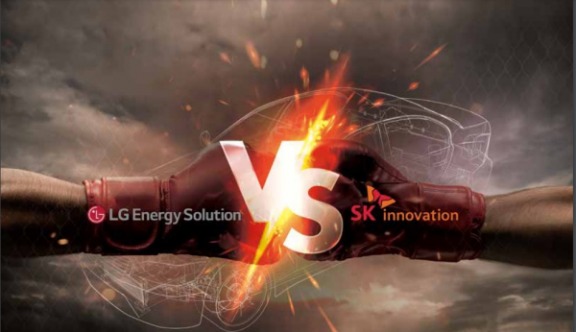LG Energy Solution and SK Innovation Meet Halfway

LG Energy Solution and SK innovation has settled their electric vehicle battery litigation before the deadline of U.S. President Joe Biden’s veto on the Feb. 11 U.S. ITC ruling.
LG Energy Solution and SK innovation buried the hatchet immediately before the deadline of U.S. President Joe Biden’s veto on the final determination of the ITC made 59 days ago.
The two companies announced on April 11 that SK innovation would pay LG Energy Solution two trillion won and then the two-year conflict would come to an end. One trillion won will be paid in cash and the rest will be paid in royalties. They will discontinue related disputes and there will be no related disputes between the two for 10 years to come.
“We opted for constructive competition and friendly cooperation in order to contribute to the development of the EV battery industries of South Korea and the United States,” they said, adding, “We will make joint efforts for the Joe Biden administration’s battery supply chain enhancement and its green policies based on it and we would like to express our gratitude to the South Korean and U.S. governments for helping us reach the agreement.”
Georgia Senators Raphael Warnock and Jon Ossoff also contributed to the happy ending. They lobbied the White House and the USTR and went between the two South Korean companies so that SK innovation’s investment in Georgia can continue.
During their litigation, Chinese EV battery manufacturers have grown rapidly to the point of threatening the companies and the administration’ energy policies. CATL, which competed with LG Energy Solution for the top spot in the global EV battery market last year, solidified its leading position in January and February by boosting its market share. According to market research firm SNE Research, the global usage of CATL batteries soared 272.1 percent year on year to 8 GWh and its market share almost doubled from 17.3 percent to 31.7 percent.
In addition, BYD beat Samsung SDI and SK innovation and came in fourth in January and February this year. The global usage of BYD batteries totaled 1.8 GWh in those months, up 401.8 percent from a year ago. CALB came in seventh with 0.8 GWh and Guoxuan High-Tech took the ninth place with 0.5 GWh. The usage of batteries manufactured by the two Chinese companies increased approximately 800 percent and 153 percent, respectively.
According to industry experts, South Korean EV battery manufacturers will accelerate their business activities based on the agreement mainly in the United States and Europe. The U.S. EV market is expected to show a rapid growth in relation to the administration’s emphasis on climate change response and environmental protection. In Europe, Chinese EV battery manufacturers are increasing their presence at a very rapid pace.
After the agreement, SK innovation is likely to keep building its plants in Commerce, Georgia while making preparations to list its subsidiary SKIET. SK innovation is currently building two plants there at a cost of 2.9 trillion won. The first plant with a capacity of 9.8 GWh is for use in the MEB platform of Volkswagen and the second, 11.7 GWh, is for supply to Ford. The first plant is scheduled to be put into commercial operation next year and the company is planning to build more plants.
SKIET, which produces and sells battery materials and components, is likely to go public in South Korea next month. Its main products include lithium-ion battery separators, which are essential for battery performance and safety.
LG Energy Solution is expected to go public this year, too. The company’s current order backlog is more than 150 trillion won and it is investing more than three trillion won a year in facilities in order to digest it. LG Energy Solution has run 5 GWh facilities in Holland, Michigan since 2012 and it is going to build 70 GWh facilities in Tennessee and so on by investing five trillion won. The capacity is equivalent to approximately one million EVs with a driving range of at least 500 km each.
LG Energy Solution is planning to increase its joint investment with GM as well. They are currently building a 35 GWh plant in Lordstown, Ohio by investing 2.7 trillion won and it will be put into operation next year. They are going to build another plant of the same size for operation to start in 2023.